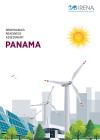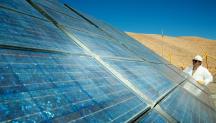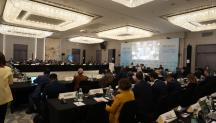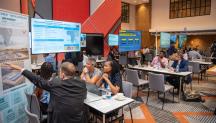

-
-
IRENA (2018), Renewables Readiness Assessment: Panama, International Renewable Energy Agency, Abu Dhabi
Copied
/-/media/Files/IRENA/Agency/Publication/2018/May/IRENA_RRA_Panama_2018_En.pdf
Copied
Renewables Readiness Assessment: Panama
Newsletter
También disponible en Español.
Panama’s National Energy Plan 2015-2050 suggests that 70% of the country’s energy supply could be renewable after 35 years. The plan was adopted as a long-term roadmap to diversify the energy sector and advance energy access, energy efficiency, energy security and overall decarbonisation of the energy system.
The country has vast potential to develop renewables, including hydropower, wind, solar, geothermal and ocean energy, as well as a range of biomass sources. However, solar and wind developers have faced challenges with the current power-market model, which favours conventional electricity sources. Flexibility measures, combined with updated planning and operational practices, would allow cost-effective integration of these variable renewable energy (VRE) sources.
Key recommendations:
- Assess the regulatory and financial incentives for solar and wind development;
- Develop a national strategy to improve power system planning and modelling with higher VRE penetration;
- Identify new operational practices to increase grid flexibility and reliability with growing shares of VRE;
- Assess the regulatory interfaces between the National Electricity Market (MEN) and Regional Electricity Market (MER);
- Examine how to develop the skills in Panama’s workforce to reach the 2050 renewable energy goal;
- Develop a long-term plan for electric mobility and sector-coupling.
A Renewables Readiness Assessment (RRA) identifies the actions needed to overcome a country's barriers to renewable energy deployment, with IRENA providing technical support and expertise to facilitate consultations among different national stakeholders. While the process helps to shape appropriate policy and regulatory choices, each country determines which renewable energy sources and technologies are relevant and consistent.




